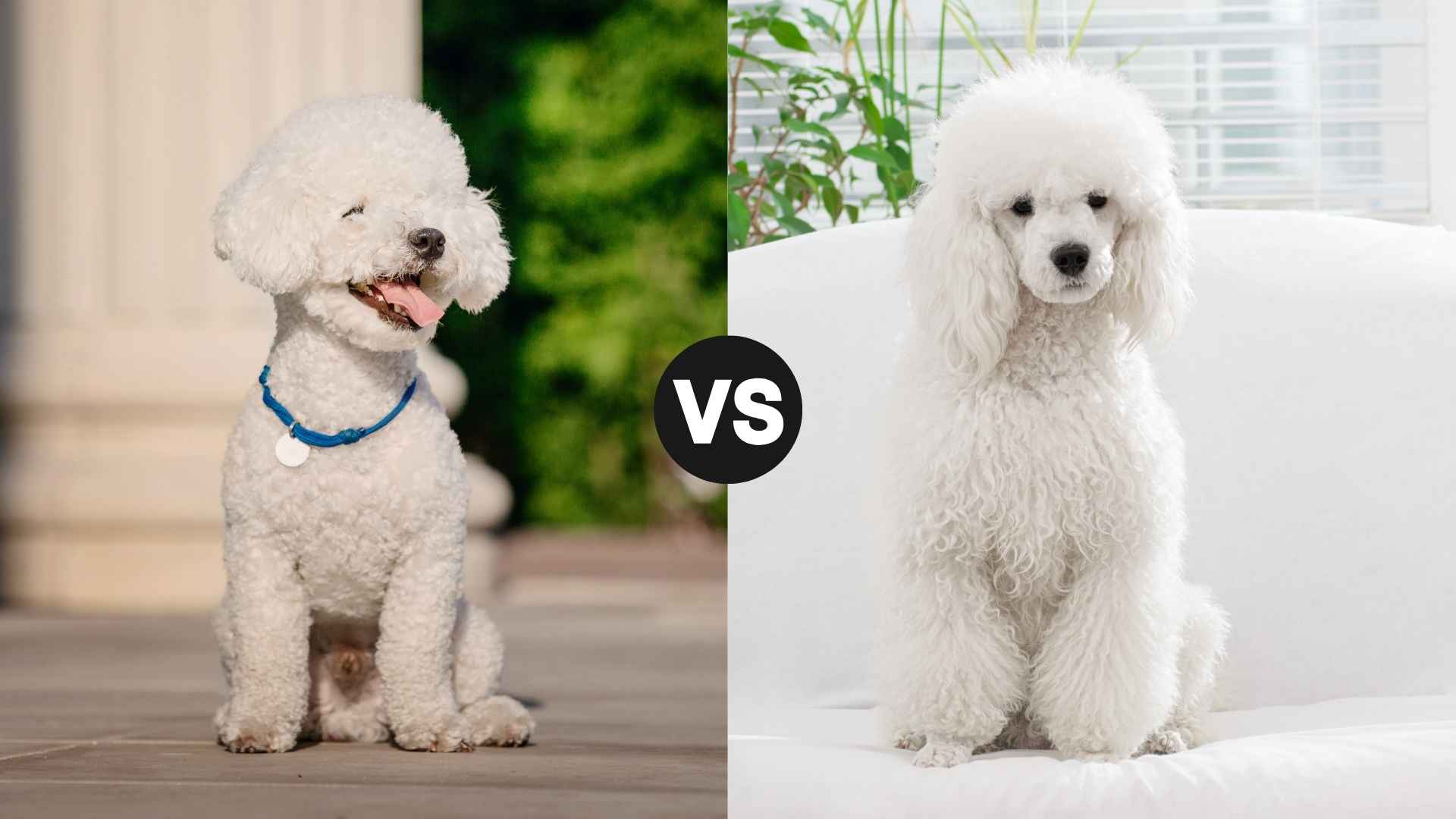When it comes to choosing between the Bichon Frise and the Poodle, it’s not just about looks, though both breeds boast eye-catching coats. It’s also about intelligence, energy, and your compatibility. The two breeds may look somewhat similar at a glance, but they reveal differences that can matter a lot to potential pet owners.
According to the American Kennel Club (AKC), the Poodle is famously brainy. Ranked as the second most intelligent dog breed by canine psychologist Dr. Stanley Coren, Poodles can learn new commands in fewer than five repetitions and obey them 95% of the time or better. That makes them a favorite among active households, service animal programs, and trainers alike.
The Bichon Frise, on the other hand, doesn’t top intelligence charts but offers an affectionate, cheerful personality and a playful, adaptable, happy nature. Known for their “merry disposition,” Bichons are often described as natural entertainers who thrive on human companionship.
Bichon Frise vs. Poodle
Here are the main differences:
Visual Differences: Appearance & Build
When comparing the Bichon Frise vs Poodle, one of the first things you’ll notice is how distinct they are in both appearance and build, despite their shared reputation as companion dogs.
The Bichon Frise is compact and sturdy with a soft, puffy coat that gives it that signature powder-puff look. It’s a small dog, usually white, with a rounded skull, dark expressive eyes, and a tail that curls over the back like a plume. In contrast, Toy Poodles and Miniature Poodles have a more refined, square frame. Their legs are longer relative to their body size, giving them a more elegant, upright stance.
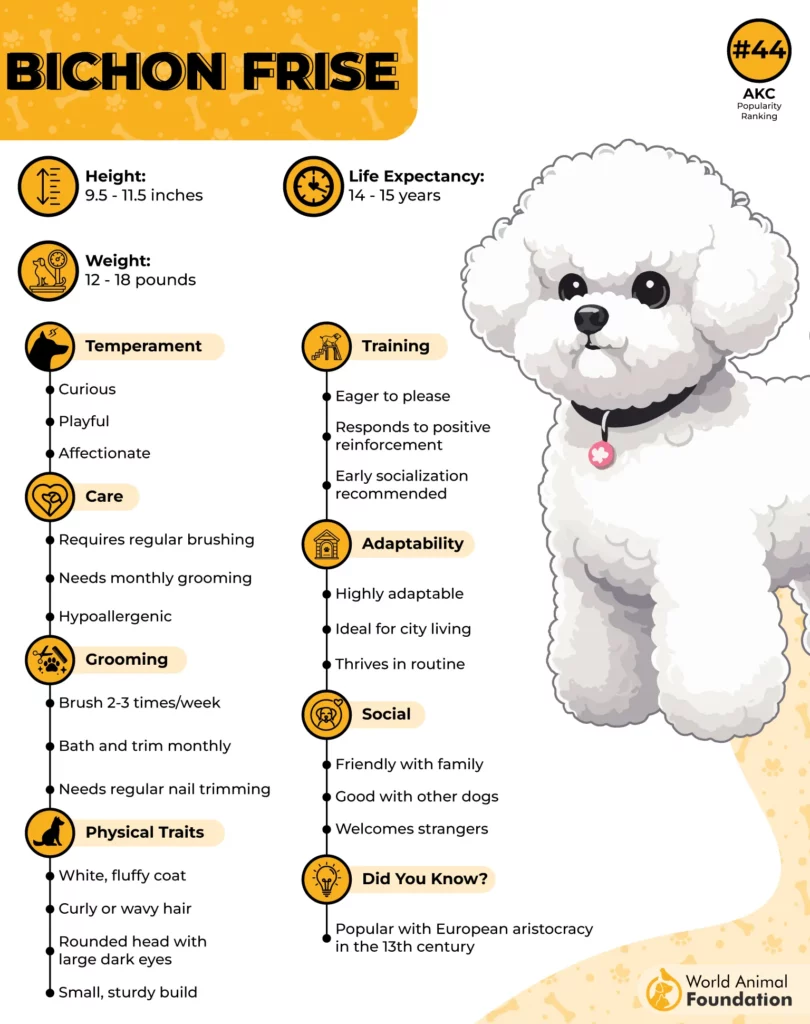
One key distinction is in the coat texture. While both breeds have curly coats, the Poodle’s curls are tighter and denser, often requiring more precision. The Bichon, on the other hand, has a looser, more cotton-like texture that’s equally high-maintenance, just in different ways.
Another visible difference lies in the floppy ears. Poodles tend to have longer, more defined ears that hang closer to the head, while the Bichon’s ears blend into the fluff around its face. Their average height also separates them. Even the smallest Standard Poodle towers over a typical Bichon Frise puppy, while toy Poodles are often a bit smaller but leggier.
Personality & Temperament Traits
When it comes to personality, the Bichon Frise vs Poodle debate isn’t about which is better—it’s about which suits you best. Both breeds are wonderful dogs, but their temperament and behavior reflect subtle but meaningful differences.
|
Trait |
Bichon Frise |
Poodle |
|---|---|---|
|
Energy Level |
Moderate to high |
High Energy |
|
Trainability |
Responds well to positive reinforcement |
Extremely responsive and intelligent |
|
Sociability |
Very people-oriented, pet-friendly |
Friendly dog but slightly more reserved |
|
Sensitivity |
Easily gets feelings hurt |
Sensitive, but more emotionally balanced |
|
Separation Tolerance |
Low—needs company |
Moderate—can be independent |
|
Suitability for Kids |
Great with small children |
Good, but supervision is needed |
|
Temperament Summary |
Loving, attention-seeking |
Smart, alert, slightly more reserved |
Exercise Needs & Energy Levels
In the Bichon Frise vs Poodle matchup, both breeds come with impressive energy, just expressed a little differently. If you’re an active family or someone who enjoys daily outdoor routines, either dog could fit, but their exercise needs aren’t identical.
Bichon Frise
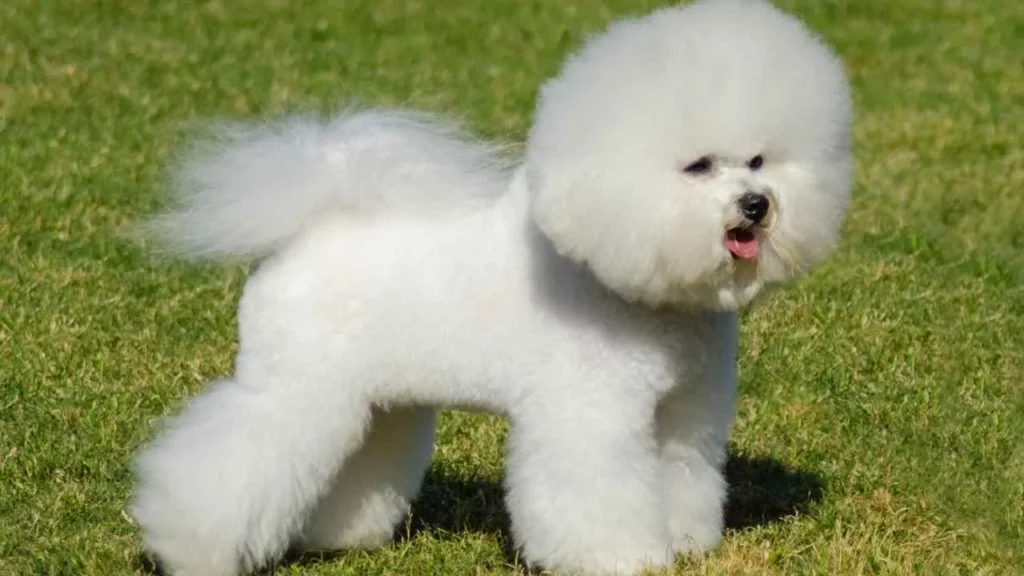
Needs moderate daily activity—playtime or walks totaling at least an hour
Thrives on interaction and attention more than physical endurance
Makes a great indoor playmate, especially for other animals and children
Gets tired faster, which makes them easier for low-key homes
Miniature and Toy Poodles
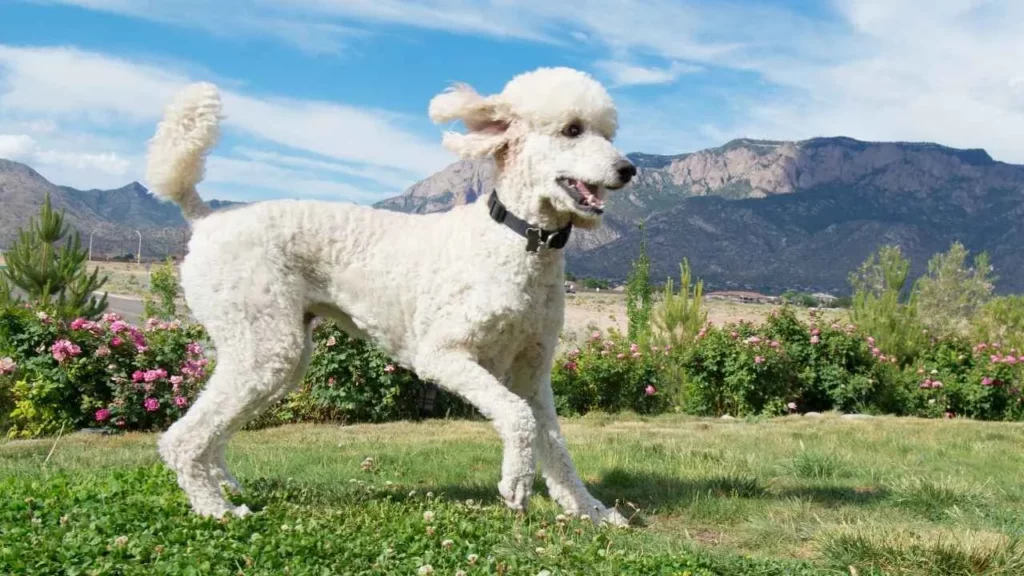
Require higher physical and mental stimulation
Benefit from games, training sessions, or puzzles.
More likely to become restless without a daily structured activity
Best for homes where exercise is part of the daily lifestyle
Training Style & Intelligence
When comparing Bichon Frise vs Poodle, training ability is one of the differences that shows up early, especially if you’re raising a puppy.
Let’s start with the Poodle. These dogs are among the most intelligent breeds on the planet. Ranked second by many canine intelligence lists, they love solving problems, learning tricks, and picking up commands quickly.
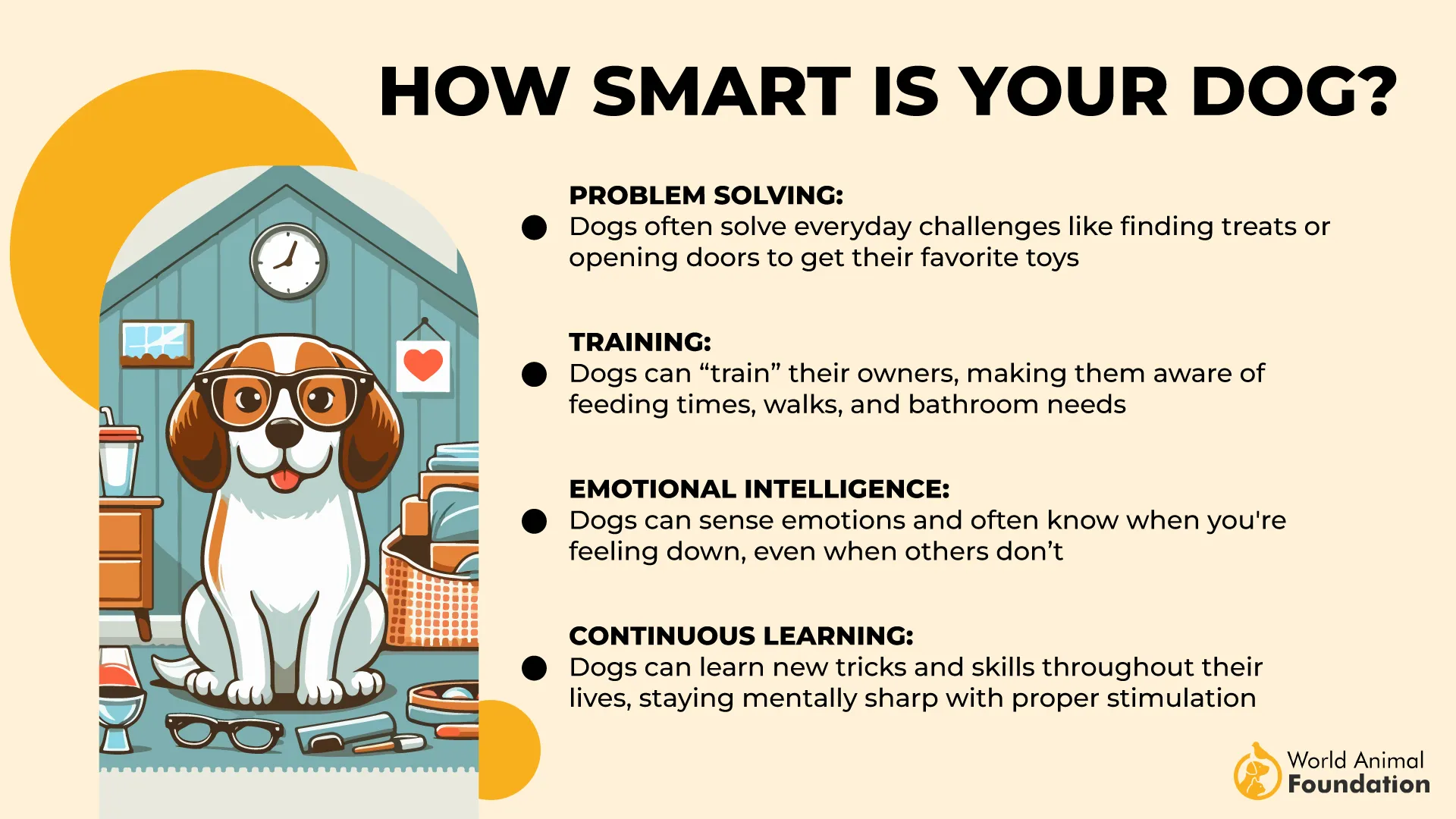
Whether you’re working with a Toy, Miniature, or Standard Poodle, you’ll find a fast learner that enjoys the challenge. They respond extremely well to positive reinforcement, and if you keep training sessions fun and consistent, they’ll thrive.
According to PetMD, the Bichon Frise, on the other hand, is smart but more emotionally driven. Their eagerness to please is real—but so is their tendency to get distracted, especially when they sense frustration.
If you raise your voice or lose your cool, a Bichon might shut down or act out. That’s why they need a trainer who’s patient, affectionate, and creative. House training especially requires a calm and consistent approach.
Health, Lifespan & Veterinary Care
When weighing the Bichon Frise vs Poodle, their overall health and care needs are just as important as their personalities. These purebred dog breeds are both generally healthy, but like all dogs, they come with a few genetic risks and maintenance demands.
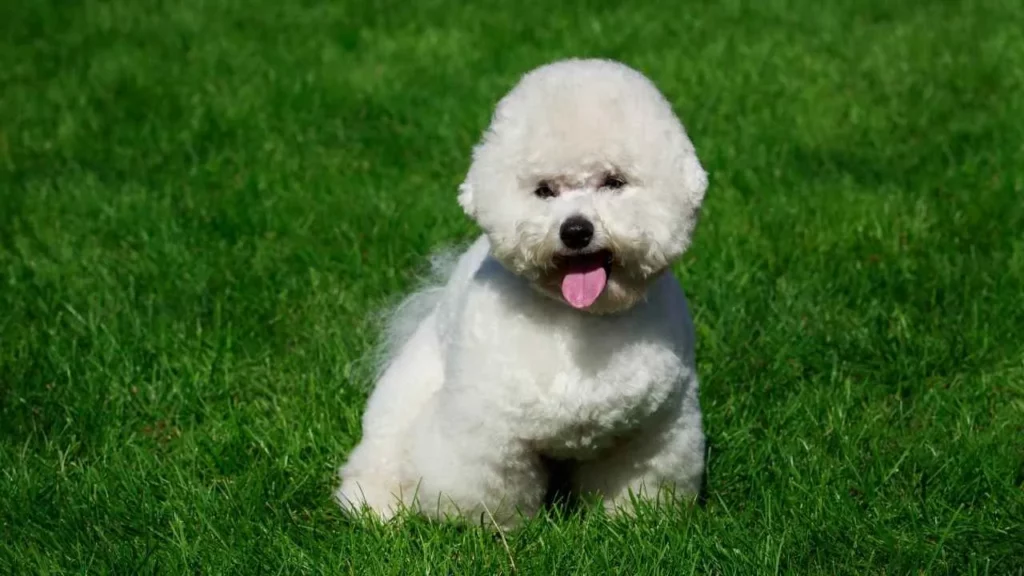
Let’s start with lifespan. Both breeds enjoy long lives, often reaching 14–15 years when well cared for. Poodles may even outlive their larger cousins, while a Bichon Frise usually lands in that same high range with proper diet and regular checkups. They’re both considered healthy dogs, but only if you stay ahead of the issues.
Common Health Concerns:
Bichon Frise
Prone to bladder infections, ear infections, and sensitive skin
Eye issues like cataracts can show up in older age
Allergies are fairly common, often needing special diets or shampoos
Poodles
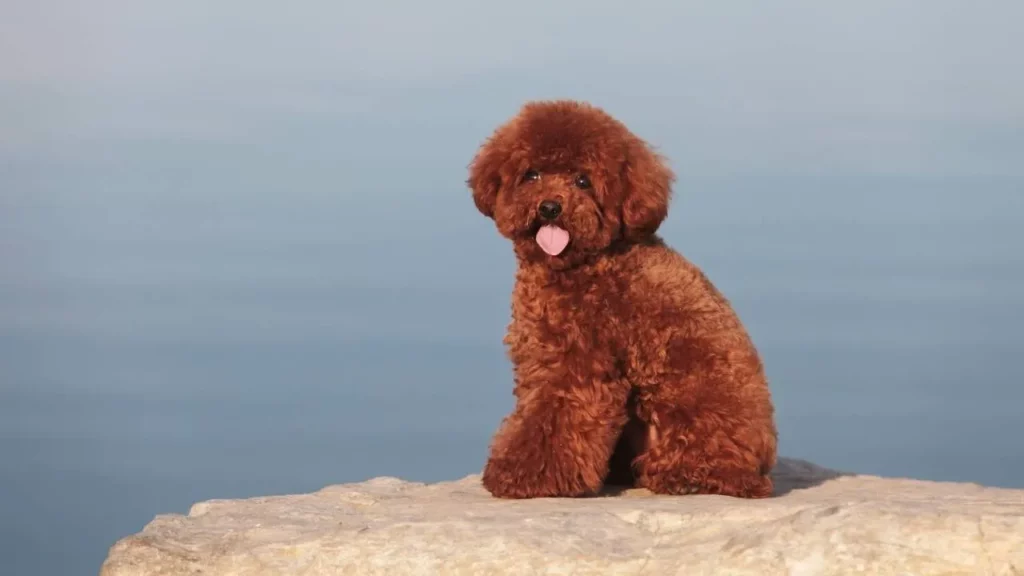
Known for joint issues like hip dysplasia, especially in the Standard Poodle
May face heart defects and Addison’s Disease
Regular vet checks are crucial for spotting early signs
Grooming Needs & Maintenance
Bichon Frise:
The Bichon has a soft, plush coat that mats easily. To avoid tangles, you’ll need to brush daily and take them to a professional groomer about every 4–6 weeks. Their signature “powder puff” look requires frequent shaping and scissoring. They’re also prone to tear staining, especially under their eyes, which requires regular cleaning.
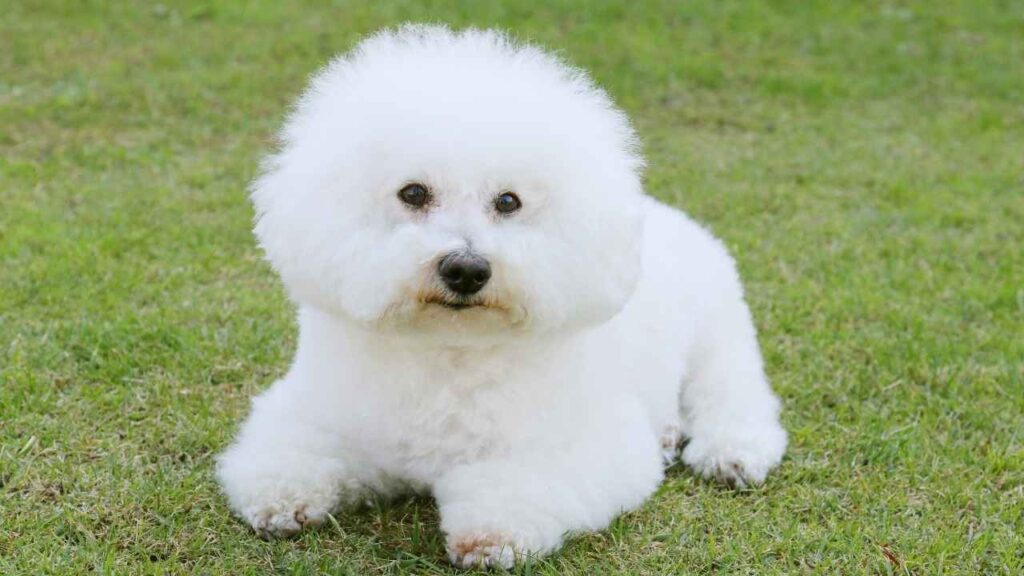
Poodle:
According to WebMD, the Poodle (whether Miniature, Toy, or Standard) has a dense, wiry coat that’s often clipped into stylized cuts. These dogs do best with daily grooming—a quick brushing each day to prevent matting—and scheduled trims every 4–6 weeks. The upside? They’re highly trainable for at-home grooming routines if you want to DIY.
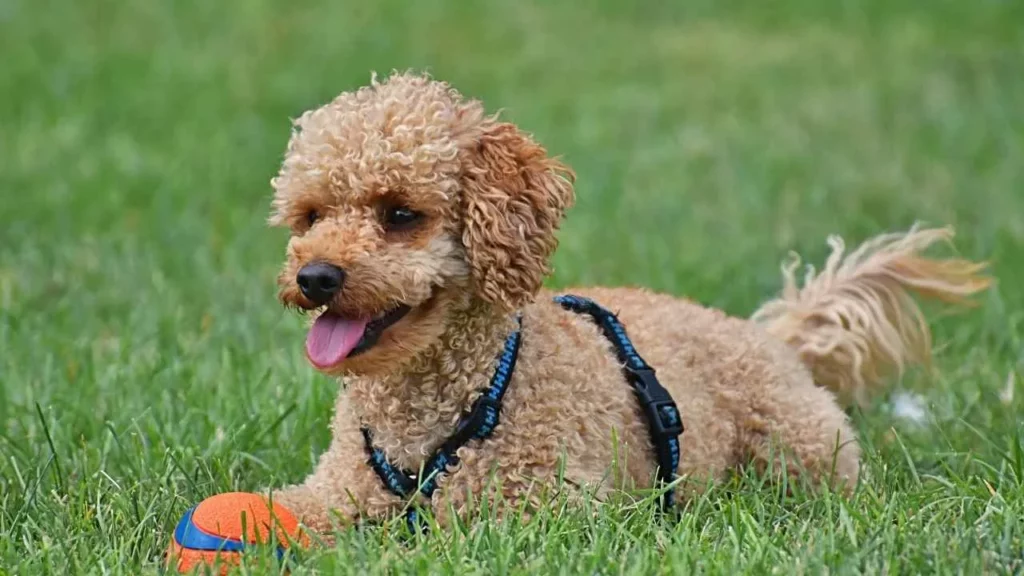
Grooming Costs:
Expect to pay premium maintenance fees for either breed, especially if you want to maintain their classic looks. DIY grooming kits are an option, but you’ll need patience and practice.
If you’re someone who doesn’t mind spending time (and money) on maintenance—or enjoys bonding over a brush—these are great dogs to pamper. But if you’re looking for a “wash and go” coat, you may want to explore other dog breeds.
Conclusion
Choosing between the Bichon Frise and the Poodle comes down to what fits you best. Both are smart, loyal, and energetic dogs that thrive on companionship and routine. If you want a playful fluffball with a cheerful personality, the Bichon might be your match. If you prefer a highly trainable, elegant pup with options in size, the Poodle checks all the boxes.
Each breed brings its own set of breed traits—from grooming needs to temperament quirks—but they share one important thing: they make incredible companion dogs when given the care, attention, and training they deserve.
Whichever route you go, your best bet is starting with a reputable breeder who screens for genetic health issues and prioritizes the well-being of their pups. That way, you’re not just getting a pet—you’re welcoming a healthy, happy dog into your family.


